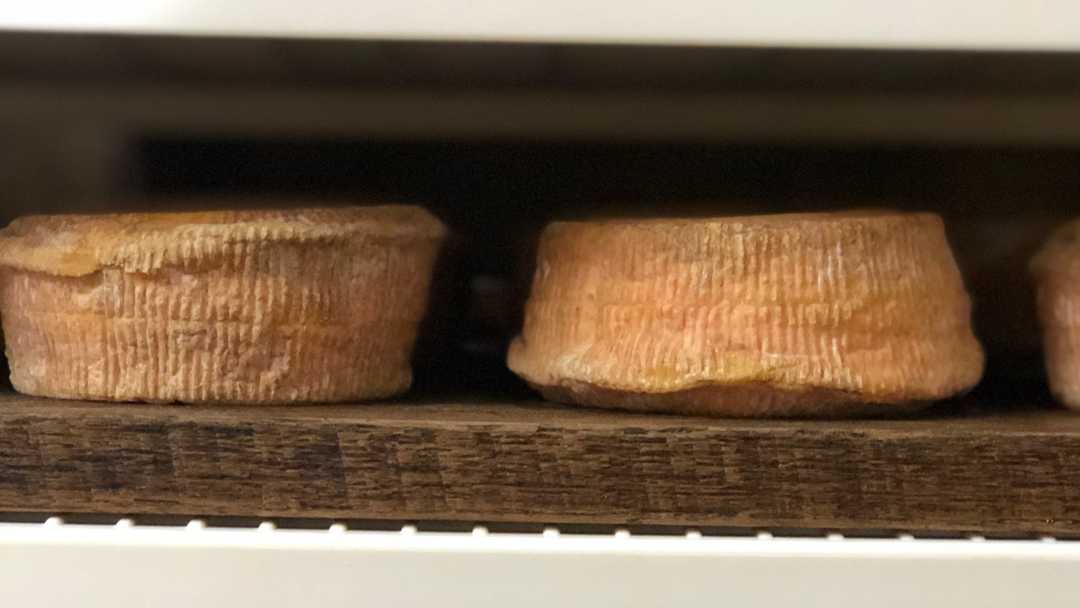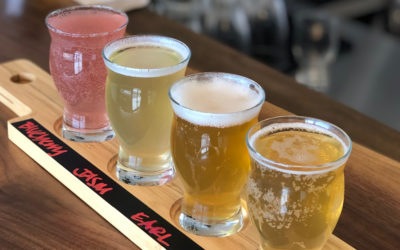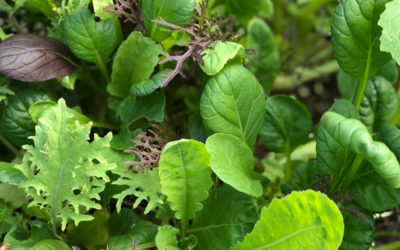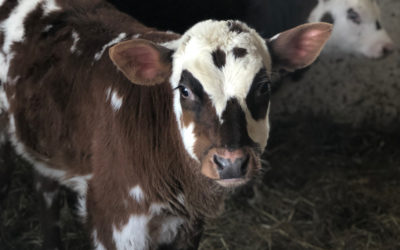Through the age-old alchemy of cheesemaking, the mother and son team behind Cato Corner Farm transform the flavors of their Colchester, CT, pasture into delicious farmstead cheeses. In 1979, Elizabeth MacAlister purchased the plot of land that now houses a barn and milking parlor for their 45 Jersey Cows, as well a creamery and cheese shop. In the mid-nineties, after years of managing a small herd of goat and sheep and dabbling in home-scale cheese making, she purchased 13 cows with a plan to produce cheese for sale. A few years later, her son Mark Gillman moved back to the family farm and took on the role of head cheese maker.

The cheeses they produce today are a reflection of the farm and its history, as well as the tradition of cheese making. Cato Corner’s signature stinky cheese, “Hooligan,” for example, is adapted from a recipe refined by Belgian monks which Elizabeth honed in her early days as a cheesemaker. What makes Hooligan distinct from that monk-made cheese is Cato Corner’s raw milk and the environment in which this liquid, perishable milk is cultured into solid, storable cheese. When derived from a specific farm in a single season, cheese tastes of that place.
Like wine, farmstead cheese has terroir. For seven months of the year, the cows at Cato Corner Farm graze on fresh green grass. When winter hits, they’re fed local hay. This forage-based diet imparts a distinct flavor to the milk, which is preserved and coaxed into the rich, nuanced flavors in all of Cato Corner’s raw milk cheeses: from their young and buttery Dutch Farmstead to their sweet and nutty Womanchego.
More Local Stories
Local Stories: Cross Culture Kombucha
There’s something special about a glass of kombucha straight from the tap according to Liz and Ian Ceppos of Cross Culture Kombucha. In fact, this very notion transformed them from homebrewers to business owners.
Local Stories: Gilbertie’s Herb Gardens
In an intricate dance of soil, seed, and sun, Sal Gilbertie oversees the production of millions of organic seedlings to feed Connecticut’s families. In a fleet of greenhouses in Easton, CT, Sal and the staff of Gilbertie’s Herb Gardens coax tender green plants of an astonishing variety to fruition.
Local Stories: Calf + Clover Creamery
Nestled in the Litchfield Hills, in a town committed to preserving cathedral pines and covered bridges, there’s a family keeping another piece of New England’s history alive. Sarah and Jeff Casel, artists turned first-generation dairy farmers, are committed to producing delicious raw milk from entirely grass-fed cows in Cornwall.




